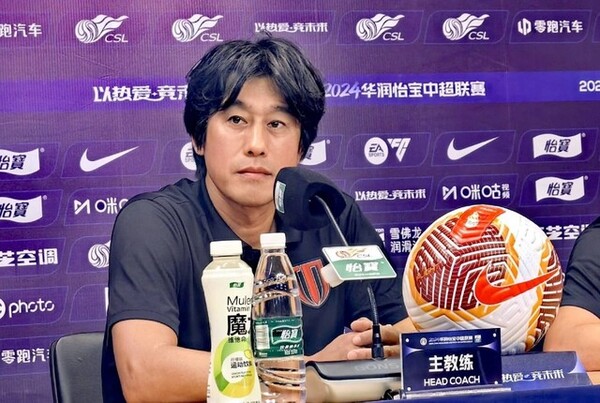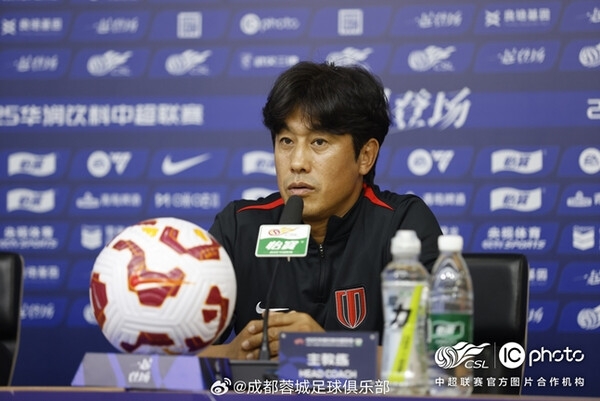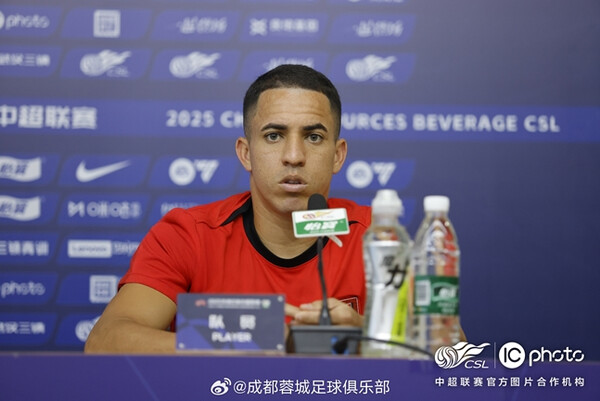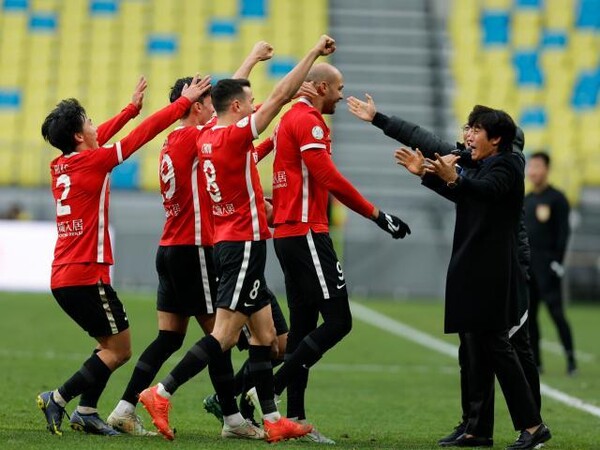
In Chinese football, few managerial success stories have been as compelling—or as abrupt in unraveling—as that of Seo Jung-won at Chengdu Rongcheng. The South Korean coach, who led the club from the obscurity of the second tier to the pinnacle of the Chinese Super League and even onto the continental stage, has now publicly declared war on his own club. His explosive press conference this week has cast a harsh light on the deep-rooted dysfunction behind the scenes at one of China’s most ambitious football projects.
From Visionary Architect to Marginalised Leader
When Seo took over in 2021, Chengdu were languishing in China League One. Within a season, he guided them through the playoffs and into the CSL. In the seasons that followed, he not only established Chengdu as a top-flight force but elevated them to third place in 2024, earning a first-ever qualification for the AFC Champions League Elite.
For a club still relatively new to top-level football, this was a remarkable achievement. Yet, rather than being rewarded, Seo found himself increasingly alienated by the new management—replaced executives with no appetite for honouring the commitments of their predecessors.

A Coach Cornered
The tension, long whispered in corridors and reported in fragments, exploded into full public view on July 17. In a pre-match press conference ahead of Chengdu’s clash with Tianjin Jinmen Tiger, Seo broke his silence with words heavy in emotion and frustration.
“I should be here to talk about the match, but instead I have to speak about something deeply regrettable,” Seo began. “We have a serious problem. I’ve been holding it in for six months for the good of the club, but as a manager, I can’t stay silent any longer.”
What followed was an astonishingly candid indictment of Chengdu's management: from sacking medical staff and interpreters without notice, to withholding coaching contract extensions until March, to completely bypassing the manager in transfer dealings. Seo described himself as powerless, undermined, and ignored.
“If the club isn’t satisfied with the coaching staff, they should say so clearly,” he continued. “I want open communication so I can make my decision as well.”
His words had the weight not just of protest, but of farewell.

Players Join the Chorus
Seo’s grievances weren’t voiced in isolation. Star midfielder Romulo, once a cult figure in Korea during his K League spell with Busan IPark, sat beside his manager and echoed his concerns.
“We work with full professionalism, but we’re not being respected,” Romulo said. “What we’ve built over five years deserves recognition. The club needs to realise this.”
Chengdu captain and Taiwan international Chou Ting-yang also took to social media to offer subtle but pointed support, posting a photo commemorating his 100th appearance under Seo with the caption: “Great leaders build great teams.”
Their loyalty was telling: Seo isn’t merely a manager—they see him as the foundation of the project. And it's that foundation the current Chengdu board appears determined to discard.
The Money Behind the Meltdown
The backdrop to this unrest is financial turmoil. Chengdu’s parent company, Xingcheng Investment Group, is undergoing severe restructuring after a series of corruption scandals involving high-ranking executives, including the former club owner.
Chinese media report that Xingcheng has withdrawn financial support following three consecutive years of staggering losses—an average annual deficit of nearly 500 million yuan (£53 million). In the face of mounting pressure, the club is slashing costs.
Seo and his backroom team, whose combined annual salary is reported at 40 million yuan (£4.3 million), have become scapegoats. The club is resisting triggering a contract clause that would automatically extend Seo’s deal by three years due to the ACL qualification, instead seeking to renegotiate at a lower salary.
But Seo’s camp has refused to budge. He delivered on his end of the agreement. Now, Chengdu are stonewalling theirs.

Death by a Thousand Cuts
The new Chengdu hierarchy appears to be deploying a familiar tactic: marginalisation through attrition. Staff hired by Seo have been quietly dismissed. Communication has broken down. Decision-making is centralised among executives. The aim, as described by Chinese outlets like Dongqiudi, seems clear—force Seo into resignation without having to pay compensation.
And yet, the scoreboard tells another story. Chengdu sit third in the league, just four points off leaders Beijing Guoan. They are still in the title race and on the verge of entering the ACL group stage. Firing Seo on sporting grounds would be indefensible.
Instead, they are pushing him out by other means.
A Breach of Honour
This saga, at its core, is not just about broken contracts—it’s about broken trust. Chengdu have benefitted from Seo’s leadership, his credibility, and the loyalty he commands from his squad. To now treat him as a disposable cost is not only dishonourable but short-sighted.
As of now, the club has issued a vague statement pledging to "listen to the coach" and "prioritise unity." But it may be too late. With half a year left on his contract, the clock is ticking.
Seo Jung-won may still lead Chengdu to further glory on the pitch. But off it, the trust may already be shattered beyond repair.
